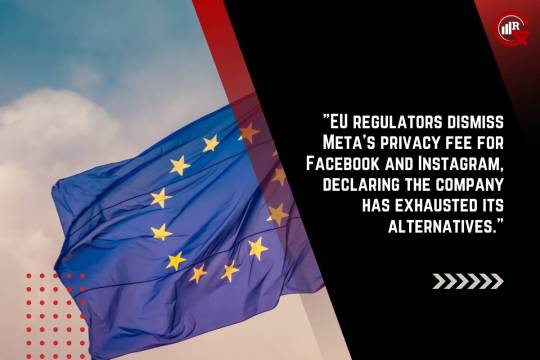#privacyright
Photo

𝗖𝗵𝗶𝗹𝗱𝗿𝗲𝗻'𝘀 𝗥𝗶𝗴𝗵𝘁 𝗡𝗼𝘁 𝗧𝗼 𝗛𝗮𝘃𝗲 𝗧𝗵𝗲𝗶𝗿 𝗟𝗲𝗴𝗶𝘁𝗶𝗺𝗮𝗰𝘆 𝗤𝘂𝗲𝘀𝘁𝗶𝗼𝗻𝗲𝗱 𝗙𝗿𝗶𝘃𝗼𝗹𝗼𝘂𝘀𝗹𝘆 𝗣𝗮𝗿𝘁 𝗢𝗳 𝗧𝗵𝗲𝗶𝗿 𝗣𝗿𝗶𝘃𝗮𝗰𝘆 𝗥𝗶𝗴𝗵𝘁: 𝗦𝘂𝗽𝗿𝗲𝗺𝗲 𝗖𝗼𝘂𝗿𝘁 𝗢𝗻 𝗣𝗼𝘄𝗲𝗿 𝗧𝗼 𝗢𝗿𝗱𝗲𝗿 '𝗗𝗡𝗔 𝗧𝗲𝘀𝘁'
For further information, refer to this News Report By SoOLEGAL.
2 notes
·
View notes
Text

An open letter to the U.S. Senate
The Senate must not pass the TikTok “ban” bill!
2,544 so far! Help us get to 3,000 signers!
I strongly oppose the Protecting Americans from Foreign Adversary Controlled Applications Act, a bill that could ban TikTok in the US. First, it violates our free speech. Second, it targets one social media company over others that have the exact same issues. A better way to safeguard our data would be to create comprehensive consumer-privacy laws that would require apps like TikTok, as well as American companies like Facebook, to face more restrictions on how they handle user data. If the Senator supports this bill they will lose my vote. Thanks.
▶ Created on March 13 by Jess Craven
📱 Text SIGN PHUJDN to 50409
🤯 Liked it? Text FOLLOW JESSCRAVEN101 to 50409
#JESSCRAVEN101#PHUJDN#resistbot#open letter#petition#USSenate#TikTok#FreeSpeech#PrivacyRights#DataProtection#ConsumerPrivacy#SocialMedia#Legislation#Bipartisanship#Technology#DigitalPrivacy#OnlineSafety#InternetFreedom#BillOpposition#PolicyDebate#CivilLiberties#UserData#DataSecurity#TechRegulation#DigitalRights#Cybersecurity#OnlinePrivacy#LegislativeAction#PolicyChange#PublicPolicy
3 notes
·
View notes
Text
Privacy is a fundamental human right
Privacy is widely considered a fundamental human right. It is recognized and protected by various international and regional human rights treaties and declarations, such as the Universal Declaration of Human Rights and the International Covenant on Civil and Political Rights. Privacy is essential for individuals to exercise their autonomy, maintain personal dignity, and freely express themselves without fear of surveillance or intrusion.
Privacy encompasses the right to control one's personal information, the right to be free from unwarranted surveillance, and the right to privacy in one's home, communications, and personal activities. It also includes the right to protect sensitive personal data from unauthorized access, use, or disclosure.
In an increasingly digital world, privacy concerns have become more prominent due to technological advancements and the vast amount of personal information being collected, stored, and shared. Protecting privacy in the digital age is crucial to safeguarding individuals' rights and preventing abuses of power.
Governments, organizations, and individuals have a responsibility to respect and uphold privacy rights. However, striking a balance between privacy and other societal interests, such as public safety or national security, can be a complex challenge that requires careful consideration and legal frameworks to ensure that privacy rights are not unjustifiably infringed upon.
#PrivacyRights#HumanRights#DataProtection#DigitalPrivacy#PersonalAutonomy#Surveillance#InformationSecurity#today on tumblr#deep thoughts#Privacy Laws#Right to Privacy#Privacy Policy#Data Privacy#Online Privacy#Privacy Advocacy#Privacy Awareness#Privacy Breach#Privacy Concerns#Privacy Legislation#Privacy Practices#Privacy Protection#Privacy Rights Activism#Privacy Safeguards#Privacy Violations#Privacy Ethics#Privacy and Technology#Privacy Best Practices#Privacy Education#Privacy Transparency
11 notes
·
View notes
Text
EU Regulators Dismiss Meta’s Privacy Fee For Facebook And Instagram, Declaring The Company Has Exhausted Its Alternatives

(Source-theregreview.org)
Meta’s attempt to charge European users of Facebook and Instagram for opting out of ad tracking seems to have hit a roadblock. Introduced late last year in response to a significant ruling by the EU’s highest court, Meta’s subscription model aimed to address concerns raised by privacy advocates. However, critics quickly pointed out that this approach failed to offer genuine consent, as users were essentially forced to pay a monthly fee to protect their privacy.
Originally priced at €12.99 ($13.82) for accounts used on both mobile and web, Meta recently proposed reducing the fee to €5.99 to appease critics. Nonetheless, the European Data Protection Board (EDPB), representing the EU’s privacy regulators, has sided with privacy advocates who derisively dubbed Meta’s approach as “pay or okay.”
The EDPB’s opinion, published following Politico’s report, emphasized that offering users only a binary choice between consenting to data processing for behavioral advertising or paying a fee does not constitute valid consent. According to EDPB Chair Anu Talus, such models fail to provide users with a genuine choice, leading many to unknowingly consent to data processing without understanding the implications.
Charging pages for reach and engaging in contextual ads
Austrian activist lawyer Max Schrems, known for his legal battles against Meta spanning over a decade, stated that Meta now has no choice but to offer users a clear option to opt in or out of personalized advertising. While Meta still has other revenue avenues, such as charging pages for reach and engaging in contextual ads, Schrems emphasized the importance of obtaining explicit consent from users before tracking them for advertising purposes.
In essence, Meta’s options in the EU appear limited. The company must now rethink its approach to user consent and privacy, ensuring that users are provided with transparent choices regarding their data. As regulatory scrutiny intensifies and privacy concerns continue to mount, Meta faces increasing pressure to align its practices with evolving standards of data protection and user rights.
Moreover, Meta’s woes in the EU underscore broader challenges faced by tech giants regarding data privacy and regulatory compliance. The company’s struggles reflect growing calls for stronger data protection measures and greater transparency in the digital ecosystem.
Clearer information about data collection practices
The EDPB’s stance signals a potential shift towards stricter enforcement of data protection laws, with implications not only for Meta but for the entire tech industry. As regulators crack down on practices deemed invasive or non-compliant, companies will need to reassess their data handling procedures and prioritize user privacy.
Furthermore, Meta’s difficulties highlight the complexities of balancing business interests with ethical considerations and legal obligations. While personalized advertising remains a lucrative revenue stream for tech companies, the pushback from regulators and privacy advocates underscores the need for a more user-centric approach to data management. In response to mounting scrutiny, Meta may face pressure to implement more robust privacy controls and transparency mechanisms. This could involve providing users with clearer information about data collection practices, enhancing consent mechanisms, and empowering users with greater control over their personal information.
0 notes
Text
Privacy Compliance: A Lesson from the ICO's Warning to The Home Office
In the complex landscape of immigration law, where every move is scrutinized and every decision carries weight, recent actions by the Information Commissioner’s Office (ICO) serve as a stark reminder of the importance of regulatory compliance. The ICO’s Enforcement Notice and Warning Letter to the Home Office, published on March 21, 2024, reverberates throughout the industry, signaling a call to…

View On WordPress
#dataprotection#dpia#GDPRCompliance#HomeOffice#ICOWarning#ImmigrationLaw#LegalEthics#privacyrights#RegulatoryCompliance#TransparencyInLaw
0 notes
Text
youtube
#youtube#news#NationalSecurity#CivilLiberties#DefenseOfficials#CyberCommand#LegalConference#USMilitary#CyberSecurity#Government#PrivacyRights#CyberWarfare#SecurityConference#CyberThreats#CyberLaw#InformationSecurity#DataProtection#NationalDefense#CyberAttacks#CyberPolicy#LawEnforcement#TechnologyGovernance
0 notes
Link
https://politi.co/48vcuG1 - 🔍 A startling revelation over dinner led journalist Byron Tau on a deep dive into the U.S. government's legal but secretive acquisition of consumer data for surveillance purposes. This journey uncovers an intricate network of contractors selling vast amounts of personal information, raising concerns even among some officials. Despite the legal standing, the lack of substantial digital privacy reforms underscores a significant privacy dilemma. #DataPrivacy #Surveillance #DigitalEra 📘 In "Means of Control," Tau elucidates the extent of government surveillance, employing purchased data from cellphones, social media, and more for purposes ranging from law enforcement to national security. This practice, though legal, skirts the traditional avenues of data collection, highlighting a concerning trend of privacy erosion in the digital age. #GovernmentSurveillance #PrivacyConcerns #TechEthics 📱 The misconception that data sold to the government is collected with full consent and remains anonymous is debunked. In reality, privacy policies seldom mention government acquisition, and the so-called anonymization fails to prevent re-identification, posing a real threat to personal privacy. #DataAnonymity #Consent #PrivacyPolicy 👥 Internal government discussions reflect a tension between leveraging available data for public safety and adhering to America's privacy values. This balance challenges officials to justify the use of commercially available data for national security, revealing a complex interplay between privacy rights and government interests. #NationalSecurity #PublicSafety #PrivacyDebate 🌐 The concept of "gray data," or the incidental data collected from our increasing array of connected devices, opens new frontiers for surveillance. From Bluetooth signals to car tire pressure monitors, this data provides a rich source for tracking, further blurring the lines of privacy in the digital age. #ConnectedDevices #SurveillanceTechnology #GrayData 🔒 The implications of widespread surveillance touch on fundamental civil liberties, with potential impacts on issues like abortion access in a post-Roe v. Wade landscape. The omnipresent digital footprint makes it nearly impossible to maintain privacy or anonymity, challenging the very fabric of a free society. #CivilLiberties #AbortionAccess #DigitalFootprint These revelations call for a critical examination of the balance between technological advancement, government surveillance, and individual privacy rights, urging a reevaluation of the boundaries of legal data acquisition and use.
#DataPrivacy#Surveillance#DigitalEra#GovernmentSurveillance#PrivacyConcerns#TechEthics#DataAnonymity#Consent#PrivacyPolicy#NationalSecurity#PublicSafety#PrivacyDebate#ConnectedDevices#SurveillanceTechnology#GrayData#CivilLiberties#AbortionAccess#DigitalFootprint#TechPolicy#PrivacyRights#EthicalSurveillance#personalinformation#socialmedia#consumerdata#community#government#acquisition#data#concern#privacy
0 notes
Photo

Navigating Drone Surveillance in Private Investigation In the era of technological advancement, the skies above are no longer empty. Drones, once confined to military applications, have now become tools of surveillance, raising concerns about privacy and civil liberties. This blog post delves into the world of drone surveillance, exploring its implications, legal aspects, and the growing role of private investigators in navigating this complex landscape. The Rise of Drone Surveillance: The use of drones ...[...] #ReadFullArticle https://investigationhotline.org/the-silent-watchers-a-deep-dive-into-drone-surveillance/?feed_id=124&_unique_id=65a1ef7b6d7e4 We appreciate your comments, shares, and questions. If you need any assistance, please don’t hesitate to call us at (416)205-9114. Investigation Hotline. Experts-Always On Call – Private Investigator Toronto https://investigationhotline.org/
#DroneSurveillance#LegalEthics#PIInsights#PrivacyRights#PrivateDetectives#PrivateInvestigation#SurveillanceTechnology#TechAdvancements
1 note
·
View note
Text
Have you ever engaged in a discussion regarding a product or a holiday destination, only to find ads related to that exact subject popping up on your social media feed shortly thereafter? It appears to be more than just a mere coincidence, doesn’t it? Well, it could very well be more than that.
Read More : https://joshsoftware.com/thought-leadership/privacy-unmasked-how-social-media-and-smart-devices-breach-our-privacy/
#PrivacyUnmasked#DataPrivacy#SmartDevices#CyberSecurity#SocialMedia#DataProtection#PrivacyRights#DataBreach#OnlineSafety#TechPrivacy
0 notes
Text
Empower your data control and privacy journey with these seven best practices. Discover how to navigate the future while respecting citizen data rights in our latest blog. 🛡️🔐
0 notes
Text
Privacy and Data Protection Concerns in Utilizing AI Video Analytics

AI video analytics is an emerging technology that is transforming the security industry. By utilizing cameras and software to analyze surveillance footage, organizations can gain valuable insights into potential threats and take proactive measures to prevent them. However, as with any technology that involves the collection and storage of data, there are concerns around privacy and data protection.
One of the biggest concerns is the potential for misuse of the data collected through AI video analytics. This data can include sensitive information such as people’s faces, license plates, and even biometric data. If this data falls into the wrong hands, it could be used for nefarious purposes such as identity theft or stalking. As a result, it is essential that organizations take steps to ensure that the data they collect is protected from unauthorized access.
Another concern is the potential for false positives. AI video analytics technology is not perfect, and there is always the risk of false alarms. If a false positive results in a person being wrongly accused of a crime or violating company policy, it can have serious consequences. Organizations need to ensure that their AI video analytics systems are calibrated correctly and that they have procedures in place to handle false positives.
Privacy regulations are also a concern for organizations that utilize AI video analytics. In many countries, there are strict laws governing the collection, storage, and use of personal data. Organizations that fail to comply with these regulations can face significant fines and other penalties. It is essential that organizations are aware of the relevant laws and regulations in their jurisdiction and take steps to ensure compliance.
To address these concerns, organizations can take several steps to protect privacy and ensure data protection. These include:
• Limiting the collection of personal data: Organizations should only collect the minimum amount of data necessary to achieve their security objectives.
• Anonymizing data: Organizations can anonymize data by removing or masking personally identifiable information.
• Encrypting data: Organizations should use encryption to protect the data they collect from unauthorized access.
• Limiting access to data: Only authorized personnel should have access to the data collected through AI video analytics.
• Implementing data retention policies: Organizations should have policies in place for the retention and deletion of data to ensure that data is not stored longer than necessary.
In Conclusion, AI video analytics is a powerful technology that can revolutionize the security industry. However, organizations must be mindful of the potential privacy and data protection concerns associated with the technology. By taking steps to protect privacy and ensure data protection, organizations can maximize the benefits of AI video analytics while minimizing the risks. At Intozi, we prioritize data privacy and protection, and we offer AI video analytics solutions that comply with relevant laws and regulations, while also providing effective security measures for our clients, utilizing emerging technologies such as facial recognition and license plate recognition.
#AIvideoanalytics#dataprivacy#datasecurity#surveillance#facialrecognition#licenseplaterecognition#privacyconcerns#securitytechnology#dataprotection#artificialintelligence#securitysystems#securitysolutions#surveillancecameras#privacyrights#securityindustry#emergingtechnology#IntoziAI#protectingprivacy#technologyandprivacy
0 notes
Video
#LibraryPrivacy
#PatronConfidentiality
#LibraryConfidentiality
#PrivacyRights
#DataPrivacy
#ConfidentialityAgreement
#LibraryEthics
#UserPrivacy
#ConfidentialityPolicy
#PrivacyProtection
#LibraryRecords
#InformationPrivacy
#IntellectualFreedom
#PrivacyAwareness
#LibrarySecurity
0 notes
Text
youtube
#MeghanMarkle#LegalVictory#HalfSisterLawsuitDismissed#RoyalFamily#CelebrityNews#EntertainmentNews#CourtCase#PrivacyRights#Youtube
0 notes
Text

🚫🔍 Respect each other's privacy! 🔒🤫 In this digital age, it's easy to forget that we all have the right to privacy. Whether it's personal information or confidential conversations, we should always respect each other's boundaries and keep things private. So next time you're tempted to snoop or share something that's not yours to share, think twice and remember to treat others as you would like to be treated. Let's make the online world a safer and more respectful place for everyone! 🌎💙
#PrivacyMatters#RespectPrivacy#OnlinePrivacy#DigitalPrivacy#PrivacyAwareness#CyberSecurity#InternetSafety#PrivacyTips#DataProtection#StaySafeOnline#PrivacyRights#ProtectYourself#SocialMediaPrivacy#OnlineRespect#PrivacyBoundaries#Confidentiality#InformationSecurity#DataPrivacy#OnlineBehavior#Netiquette
0 notes
Text
youtube
#youtube#usmilitary#news#NationalSecurity#CivilLiberties#DefenseOfficials#CyberCommand#LegalConference#USMilitary#CyberSecurity#Government#PrivacyRights#CyberWarfare#SecurityConference#CyberThreats#CyberLaw#InformationSecurity#DataProtection#NationalDefense#CyberAttacks#CyberPolicy#LawEnforcement#TechnologyGovernance
0 notes
Link
https://bit.ly/4a7KSIz - 🔒 The UK's Information Commissioner's Office (ICO) has mandated Serco to halt the use of biometric technology, including facial recognition and fingerprint scanning, at 38 leisure facilities it operates. This action comes after an investigation revealed that over 2,000 employees' biometric data were processed unlawfully for attendance and payroll purposes, with no option for staff to opt-out, highlighting a significant power imbalance. #DataProtection #EmployeeRights #BiometricData 🚫 UK Information Commissioner John Edwards criticized Serco Leisure for not adequately assessing the risks associated with biometric technology, emphasizing the irreversibility of biometric data versus traditional passwords. The ICO's directive includes the destruction of all unlawfully retained biometric data within three months, underlining the importance of privacy over business interests. #PrivacyRights #TechnologyEthics #WorkplaceSurveillance 🛑 Highlighting the issue's gravity, the enforcement notice affects not only Serco Leisure but also Serco Jersey and seven other community leisure trusts. These entities, known for their extensive involvement in various public service contracts, including pandemic response and criminal tagging, are now under scrutiny for their handling of sensitive employee data. #PublicTrust #CorporateAccountability #BiometricSurveillance 📚 In response to these findings, the ICO has issued new guidance for organizations on the legal and ethical use of biometric data. This aims to ensure that entities like Serco consider the potential risks and biases associated with biometric technology, promoting a more responsible and lawful approach to data management.
#DataProtection#EmployeeRights#BiometricData#PrivacyRights#TechnologyEthics#WorkplaceSurveillance#PublicTrust#CorporateAccountability#BiometricSurveillance#EthicalTech#DataGuidance#OrganizationalResponsibility#serco#threemonths#informationcommissioner#technology#recognition#facilities#data#staff
0 notes